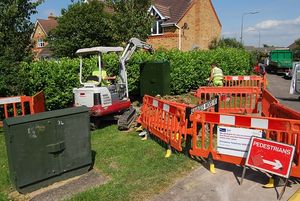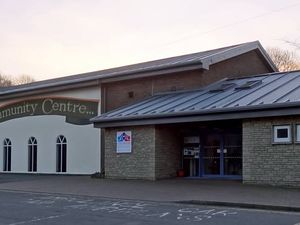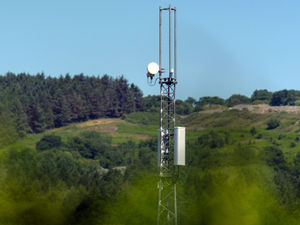Shropshire in the broadband slow lane as Telford and Wrekin speeds ahead
Internet users in Shropshire are stuck in the broadband slow lane – with download speeds barely half that of users in neighbouring Telford and Wrekin.

With thousands of people working from home and children about to break up for the school half-term, the already poor bandwidth in Shropshire is being stretched to the limit.
Industry body The Broadband Stakeholder Group says investment is more important than ever and that Covid-19 has only widened the digital divide.
Figures published from comparison site Compare the Market show people living in the Shropshire Council local authority area get an average broadband download speed of just 37.8 Mbps – well below the UK-wide average of 64 Mbps and a long way short of the average for users in Telford and Wrekin, which is 71.7 Mbps.
Shropshire sits 285th in the country for broadband speed, putting it in the bottom fifth with Telford and Wrekin 86th, above cities such as Liverpool, Leeds and Glasgow.
The comparison site says the UK is currently engaged in a race to deliver 1GB broadband for all homes by 2025, which would mean 26 times faster for Shropshire users and 14 times faster for Telford and Wrekin.
Individual speeds can be found on the Compare the Market website.
Councillor Heather Kidd, who represents Chirbury, said the average speed for Shropshire was one most rural families and businesses would love to have.
"I have had people tell me that they have got just one Mbps," she said. "They feel absolutely blessed if they have two.
'Very hard for employees'
"It is very hard for employers and employees with so many people working from home at the moment because of coronavirus.
"The problem can be just as difficult for people in villages which have had fibre broadband fitted because the band width is so narrow that it is straining under the number of people who are using it.
"With half-term next week meaning children will be at home accessing the internet, that will place even more strain on the system."
Councillor Kidd said more investment was needed, aimed specifically at the rural areas.
"Shropshire can not carry on being a 'not spot'," she added. "There is a new grant scheme for households with low broadband speed, however it is only available if there are two or more of you.
"Many parts of Shropshire have a very scattered community and finding someone else to team up with can be very difficult."
Councillor Kidd also believes Shropshire's poor broadband links and the coronavirus pandemic are having an effect on local democracy.
Struggling
With all levels of local authority being recommended not to meet in village halls or council chambers, they are instead holding their meetings via the internet on services such as Zoom.
But in some areas individual councillors are struggling to get enough broadband speed or band width to join in the meetings, particularly if they have their cameras on their computers turned on.
Councillor Kidd, who sits on both Shropshire Council and Chirbury with Brompton Parish Council, said Zoom meetings were hit and miss in many rural areas because of poor broadband.
"There are lots and lots of meetings that I have heard of where participants have to have their cameras switched off so that they can join in the meeting," she continued.
"For a parish council such as Chirbury with Brompton, members are scattered over a very rural area and often there signal is dipping in and out."
The Broadband Stakeholder Group, an industry body that advises the Government, also wants more investment – especially in rural areas.
'Case for sustained investment never stronger'
Chief executive officer Clare MacNamara said: “The case for sustained investment in 5G and gigabit connectivity in support of the UK Government’s 2025 ambitions has never been stronger.
“Digital connectivity has never been as critical to our ability to navigate our new normal, socially-distanced lives as citizens, businesses and consumers, and the need for regulatory and policy certainty has never been greater.
“As connectivity will be one of the key facilitators of economic recovery, it is more important than ever for Government and Ofcom to incentivise and support investment.
"This could particularly benefit people living in sparsely populated and rural areas where network roll-out isn’t economically viable.
"For these communities, Covid-19 has only served to widen the digital divide.”





